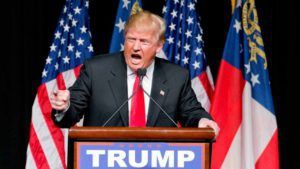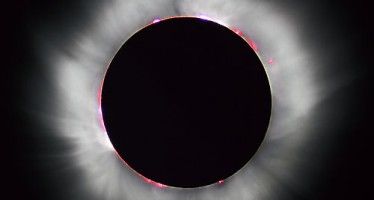Trump may be reluctant to settle Trump University lawsuit
 Will Donald Trump accept a high-profile legal setback so soon after his greatest triumph?
Will Donald Trump accept a high-profile legal setback so soon after his greatest triumph?
That’s the question hanging over the class-action lawsuit against Trump University that’s now being heard in a San Diego federal court.
In the wake of Trump’s unexpected victory in the presidential election last week, there’s new interest in a settlement of the suit. At a hearing Thursday, U.S. District Judge Gonzalo Curiel was cool to Trump attorney Daniel Petrocelli’s suggestion that the trial be delayed. A motion toward that end was filed this weekend.
Curiel — an Indiana native whose fairness was questioned in June by Trump because of his Mexican ancestry — instead urged Petrocelli to consider a settlement with the plaintiffs in the class-action suit. There could be as many as 7,000 individuals getting refunds and damages, depending on the terms of the deal.
Curiel suggested Petrocelli and plaintiff attorney Patrick Coughlin take up the offer of retired San Diego federal Judge Jeffrey Miller to serve as a mediator.
While Petrocelli told Curiel he was “all ears” to using a settlement to avoid a full-blown trial, Trump’s lawyer may have trouble persuading his client. To receive advice and training from Trump University’s “handpicked” instructors, students paid up to $35,000. A settlement could require Trump to pay tens of millions of dollars — and in so doing essentially admit wrongdoing.
Trump has spurned settlements before
On the campaign trail, the president-elect was adamant that he had done nothing wrong and had misled no one. While Trump owns 92 percent of the university, he has said he had nothing to do with the decisions that led to the class-action suit being filed in 2010: the false claims in Trump U. promotional materials that it was a fully accredited college and that the real-estate mogul had personally chosen his “faculty.”
Coughlin told reporters that previous settlement talks had gone nowhere. Citing positive evaluations from Trump U. students, Trump’s attorneys have questioned the idea that the great majority of the 7,000 students eligible for settlement payments actually suffered any personal damage.
There is an immense gap between Trump’s description of Trump University and plaintiffs’ descriptions of it.
The president-elect issued a statement in June in which he said students “were provided a substantive, valuable education based upon a curriculum developed by professors from Northwestern University, Columbia Business School, Stanford University and other respected institutions.”
The plaintiffs provided testimony and depositions that depicted Trump U. seminars as akin to a marketing scheme in which students received boilerplate instruction while constantly being pressured to max out their credit cards to get more personalized “elite” status, including direct instruction from a mentor.
Curiel has ruled that the positive student evaluations repeatedly cited by Trump and his lawyers could not be introduced into evidence in the case.
The judge has yet to rule definitively on whether Trump’s campaign-trail remarks about him, his ethnicity and his handling of the trial could be used during the trial. Last week, he rejected Trump’s lawyers request for a blanket ban on all such statements. But Curiel said he was open to more specific requests to withhold some of Trump’s comments and tweets as not being germane to the issues in the trial.
Were Trump able to settle the lawsuit, he still has other legal headaches related to Trump University. Another class-action suit is pending in San Diego as well as a lawsuit in New York.
Chris Reed
Chris Reed is a regular contributor to Cal Watchdog. Reed is an editorial writer for U-T San Diego. Before joining the U-T in July 2005, he was the opinion-page columns editor and wrote the featured weekly Unspin column for The Orange County Register. Reed was on the national board of the Association of Opinion Page Editors from 2003-2005. From 2000 to 2005, Reed made more than 100 appearances as a featured news analyst on Los Angeles-area National Public Radio affiliate KPCC-FM. From 1990 to 1998, Reed was an editor, metro columnist and film critic at the Inland Valley Daily Bulletin in Ontario. Reed has a political science degree from the University of Hawaii (Hilo campus), where he edited the student newspaper, the Vulcan News, his senior year. He is on Twitter: @chrisreed99.
Related Articles
Biggest solar farm eclipsed
Solar was supposed to be the key “renewable energy” powering California away from dirty old fossil fuels and into the
Controller Critiques Redevelopment
John Seiler: State Controller John Chiang Monday entered the fray over redevelopment agencies with a new report labeling them not
Providence Could Cut Pensions
John Seiler: I’ve been arguing for a couple of years that the pension problem in California is so bad that



